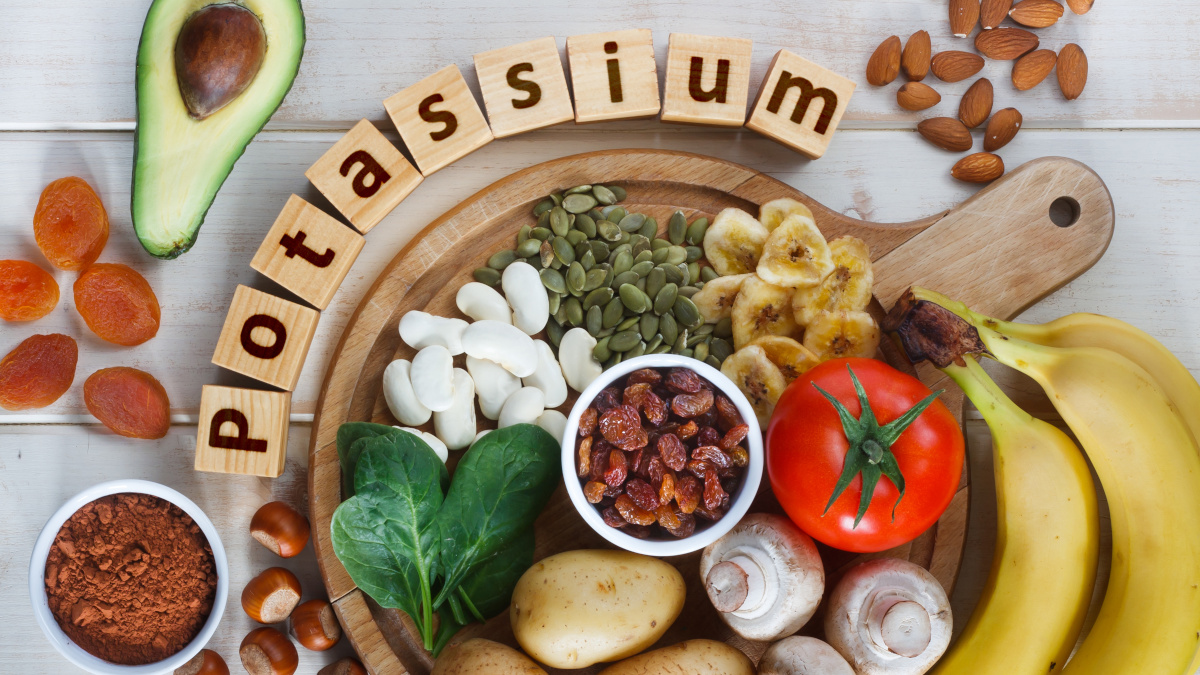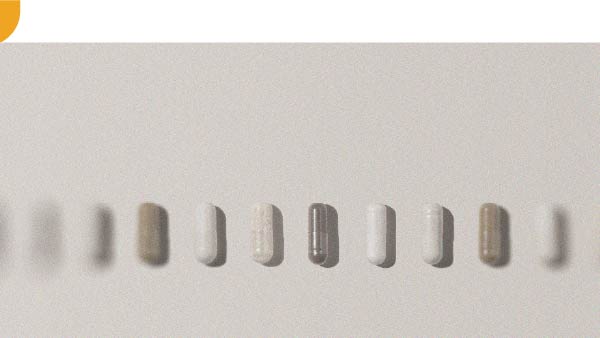A lack of potassium: how to recognise and prevent it
Potassium is an essential mineral, involved in nervous system and muscle function ... Suffice to say that a lack of potassium can quickly become a real risk to health. Here’s how to identify and correct such deficiency.

Potassium deficiency: what are the symptoms?
Potassium deficiency, or hypokalemia, manifests in several ways:
- muscle cramps, pain or weakness;
- fatigue;
- sluggishness and pain in the gut and abdomen.
It’s important to note, however, that hypokalemia is often asymptomatic, though it can still pose a significant risk to health: on the one hand, kidney problems, and on the other, dysfunction of the heart muscle (1). To confirm whether you are definitely deficient in potassium, be sure to seek advice from a health professional.
There are many potential causes of a lack of potassium: certain diseases, but also excessive use of diuretic drugs, alcoholism and severe diarrhoea.
What are potassium’s effects on the body?
Potassium participates in several of the body’s vital functions. It plays a role in:
- normal nervous system function. Able to pass through the neuronal membrane, the potassium ion (K+) is involved in regulating nerve impulses transmitted along neurons ;
- good muscle function. The strength of a muscle contraction relies on potassium, whether it’s an involuntary contraction (intestinal, vascular, bronchial, cardiac muscles) or a voluntary one (skeletal muscles);
- maintaining normal blood pressure. More specifically, it is thought to have a direct vasodilatory role which may improve blood flow, and promote the elimination of sodium (a vasoconstrictor that can be damaging to cardiovascular health) (2).
Which foods and dietary supplements contain this mineral?
To reduce the risk of any complications associated with potassium deficiency, it’s important to ensure your daily diet provides an adequate intake of this key mineral.
Which foods contain potassium?
There are many foods that can help you meet your daily requirements for potassium:
- green herbs: parsley, basil … ;
- seaweed: but be careful of its high sodium content if you suffer from hypertension;
- spices: saffron, paprika, chilli, cumin… ;
- coffee;
- pulses: haricot or soya beans … ;
- bananas, apricots… (3)
Dietary supplements that contain potassium
Along with eating a varied, balanced diet, certain supplements can help you increase your potassium levels :
- potassium orotate (as in the product Potassium Orotate), recognised as being the easiest form for the body to absorb;
- potassium bicarbonate (as in Potassium Bicarbonate), a classic form of potassium ;
- or indeed a mineral complex, (such as MultiMineral Complex), which as well as potassium, provides many other trace-elements.
References
- Fumeaux, I. K. Z. (2007). Hypokaliémie: diagnostic et prise en charge. Rev Med Suisse, 3(101), 574-6.
- Agostoni, C. V., Bresson, J. L., Fairweather Tait, S., Flynn, A., Golly, I., Korhonen, H., ... & Moseley, B. (2010). Scientific Opinion on the substantiation of health claims related to potassium and maintenance of normal muscular and neurological function (ID 320, 386) and maintenance of normal blood pressure (ID 321) pursuant to Article 13 (1) of Regulation (EC) No 1924/2006.
- Table Ciqual. ANSES. Consulté en septembre 2020.
Keywords
1 Days
Efficiency and speed
Efficiency and speed
Cuccie
3 Days
GOOD BRAND IN FOOD COMPLEMENTS
GOOD BRAND IN FOOD COMPLEMENTS - SERIOUS WITH GOOD DOCUMENTS AND DETAILS SCIENTIST. AND SERIOUS HONNEST COMMERZIALISATION. I HAVE TRUST IN THEIR PRODUCTS.
FENOGLIO Guy
4 Days
Very good experience
Very good experience, the products arrived in time, in perfect condition and are good quality. Thank you.
GABI TIRCOCI
10 Days
very good expereince
very good expereince
Jelena Đaković
10 Days
Very good products.
Very good products.
Agnes BENDSAK
12 Days
Just OK
Just OK, ordering from company for many years and being safisfied
Lynn Mae
13 Days
Recomendo
Produtos encomendados são recebidos atempadamente e de acordo com o anunciado! Muito satisfeita!
Carla Sofia
13 Days
Everything is great!
Everything is great!
Jonas
18 Days
The delivery was fast and the product…
The delivery was fast and the product is great
SOMMARIVA Gianni
19 Days
Great service and lots of information
Great service and lots of information
Gabi
22 Days
Service Satisfaction
I’m satisfied with the service; it fulfilled what it set out to do.
Anfhony Abreu
25 Days
Original product and fast delivery
Original product and fast delivery. I haven't started it yet, but will do soon.
Vincenza Catania
28 Days
Good quality
Good quality. Good service.
Leonel Guzman
30 Days
Top!!!!!!!!
Top!!!!!!!!
Michael
32 Days
Excellent!
Products are great and delivered fast!
PARDINI Debora
of experience
your money back
##montant## purchase




